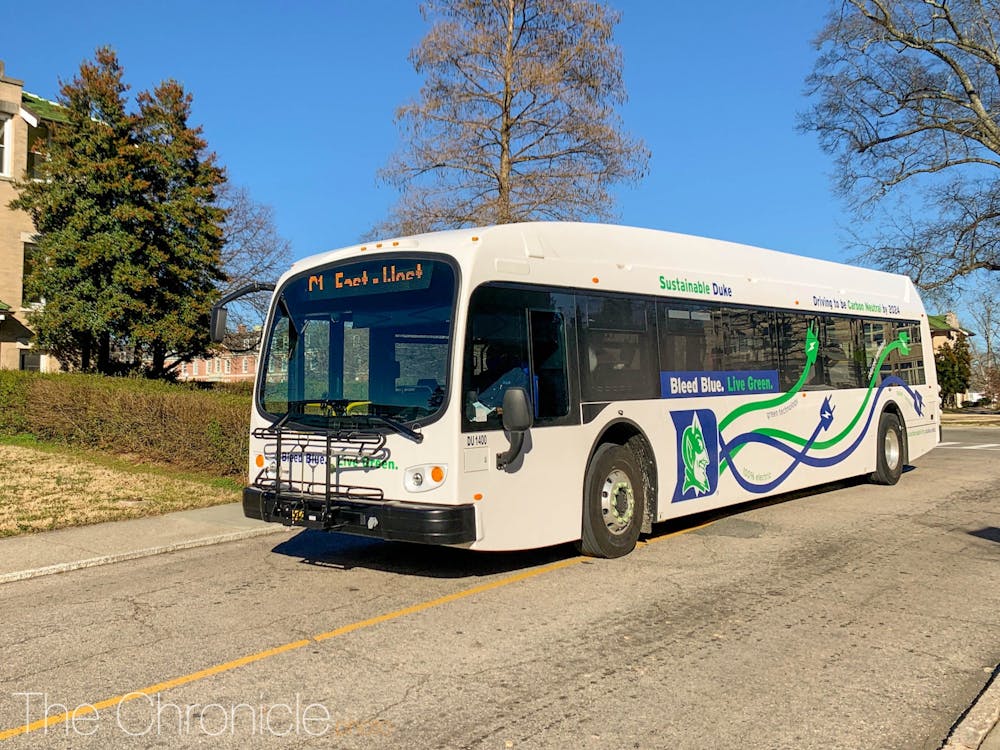In early February, two fully electric buses began traveling the C1 route between East and West campuses.
These buses have provided more pleasant rides for both drivers and passengers and have helped to reduce Duke’s transportation-related emissions.
“My friends and I were definitely talking a lot about [the buses] when the semester kicked off,” first-year Sophie Munro said. “I get excited whenever I see the electric bus and get to ride it. It’s so quiet, very spacious, and overall the ride feels a lot smoother in comparison to the gas buses.”
The new vehicles are also helpful for bus operators because they accelerate and stop in a more responsive way compared to traditional buses, said Carl DePinto, director of parking and transportation services.
In addition to the improved driving and riding experience, the implementation of electric buses is a significant step towards Duke’s 2024 goal of achieving carbon neutrality.
According to Proterra, the manufacturer of the newest additions to the campus fleet, electric buses have no tailpipe emissions, while traditional diesel buses emit more than 200,000 pounds of carbon dioxide a year. With the two new buses replacing diesel ones, Duke prevents around 500,000 pounds of carbon dioxide from entering the atmosphere.
Compared to Duke’s overall emissions, this reduction is small but still important. Vehicles account for about 1% of Duke’s total emissions, said Jason Elliott, assistant director of Sustainable Duke.
“Most of the emissions come from heating and cooling buildings, electricity use on campus and employees commuting to and from campus,” Elliot said.
Elliott said that although transportation is not a main contributor to campus emissions, electric buses are still a significant move in the right direction.
“Electric buses are kind of like moving billboards. They are a great way for Duke to demonstrate publicly the stuff that is typically going on behind the scenes where most of our emissions reductions come from,” he said.
Some of these behind-the-scenes actions include Duke’s recent deal with Pine Gate Renewables, which will allow Duke to satisfy roughly half of its electricity needs with solar energy. This move, along with the steps the University had previously taken, is expected to reduce Duke’s overall emissions by 73% by 2024.
In the near future, Duke expects to replace more diesel buses with fully electric buses.
“As we move into new buses, we utilize older buses for spares and parts, and some buses are transferred to Duke surplus to sell or recycle,” DePinto said.
Munro said she is excited about this recent move towards energy sustainability and looking forward to more campus-wide climate action from students and administration.
“I think Duke’s investment in electric buses is wonderful! I would definitely like to see Duke take more steps like this in making significant investments to lower emissions and increase sustainability on campus.” Munro said.
With the option to ride on electric buses around campus, Elliott sees an opportunity for more reflection among riders.
“I hope people are learning and thinking more about their everyday decisions,” he said.
Get The Chronicle straight to your inbox
Sign up for our weekly newsletter. Cancel at any time.

